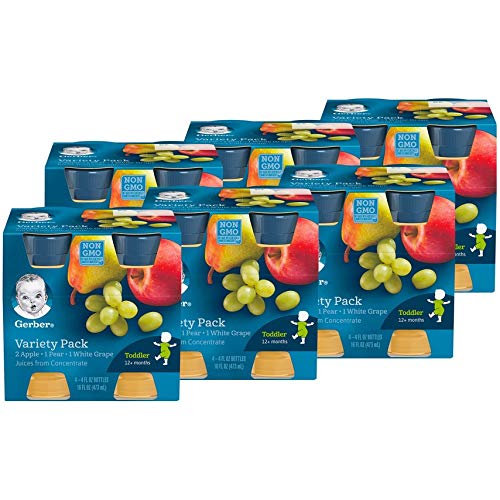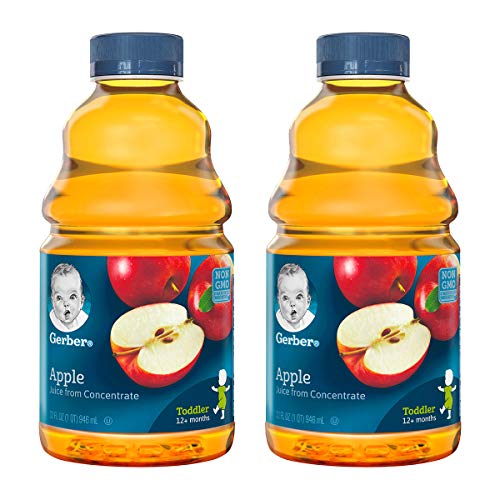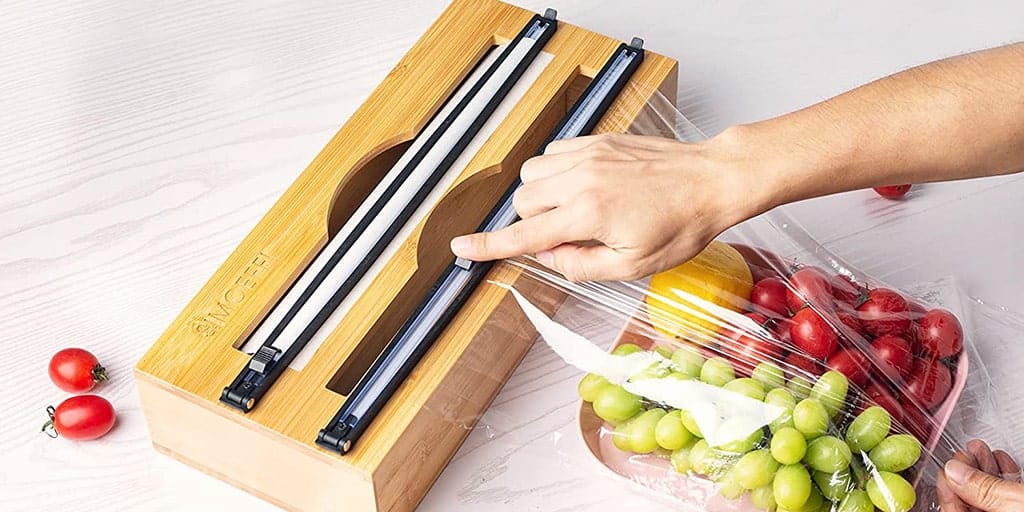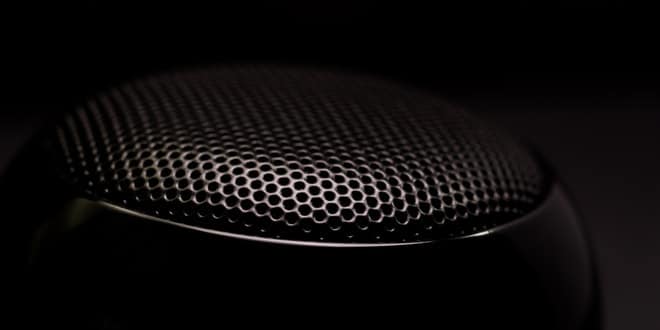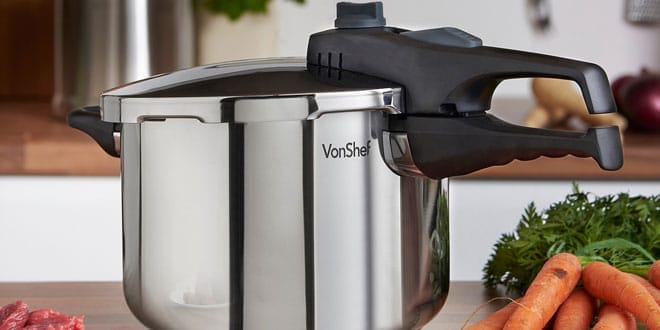When it comes to the health and wellness of your little one, you naturally want nothing but the best. Hydration forms an integral part of a baby’s diet and it’s crucial that you choose the right beverages. This is where baby juice comes into play. But with an overwhelming array of options, how do you decide which is the best baby juice to buy in 2024?
Fear not, because we’ve taken the heavy lifting out of the equation. In this blog post, we will guide you through the top 10 best baby juices available now, helping you make an informed decision that ensures your baby’s health and happiness. So, let’s dive into the world of baby juices and discover the best of the best in 2024.
Table of Contents
Why Should I Buy a Best Baby Juice?
Buying the best baby juice is an important decision to make when it comes to providing nutrition for your little one. While there are many options available on store shelves, not all of them are equal in terms of quality and nutritional content. Knowing which brand and type offers the most benefit can save you time, and money, and ultimately help ensure that your baby is receiving top-notch nutrition from a trusted source.
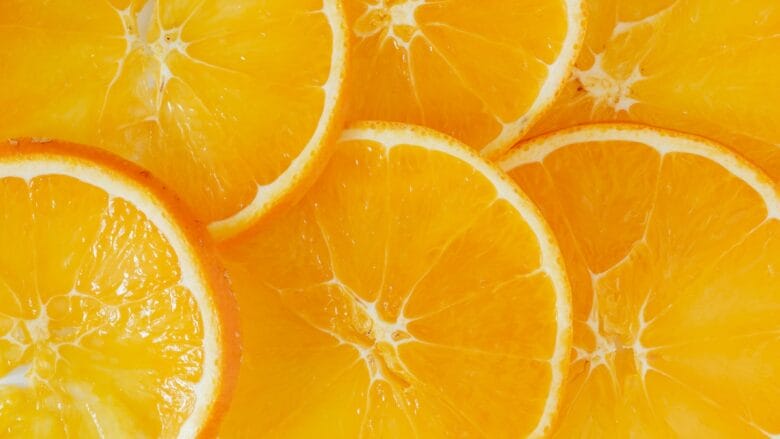
Baby juice provides children with essential vitamins and minerals that they need in order to develop optimally throughout their first year of life. It contains a range of vitamins such as A, B6, C, D, E, K1 & K2; minerals like calcium & magnesium; plus other key nutrients such as amino acids & omega 3 fatty acids – all packed into one delicious drink!
Additionally, many brands now offer organic juices produced without pesticides or chemical fertilizers so parents can feel confident about what they’re feeding their babies.
It’s important to take into account ingredient labels on any baby food product because although some may claim to be healthy or “all-natural” this could still mean added sugars or preservatives have been included in very small amounts which aren’t always easy to identify by sight alone.
Furthermore, certain brands might label their products “fruit” drinks but these again could contain artificial flavors or colors so reading through the ingredients list thoroughly before making a purchase will help alert you if anything suspicious has been used during manufacturing processes.
Ultimately though with a bit of research, it’s possible to find high-quality baby juices that provide complete nutrition alongside great flavors – giving parents peace of mind knowing they’re taking good care of their little ones!
Top 10 Best Baby Juice You Can Buy Now in 2024
As parents, we know how important it is to provide our little ones with the best possible nutrition, especially during their early years. One of the ways we can ensure they receive essential vitamins and minerals is through baby juice. With so many options available, it can be overwhelming to choose the right one.
But fear not, as we have done the research and compiled a list of the top 10 best baby juices you can buy now in 2024.
From apple to peach to watermelon, these juices are not only delicious but also packed with nutrients to support your baby’s healthy growth and development. Give your baby the gift of good health with these top-rated juices!
See also: Top 10 Best Sellers in Womens Eau de Parfum.
1. Gerber Water & Fruit Toddler Juice Blend, Strawberry Kiwi, 32 Ounce Bottles (Pack of 6)
- Product name: Gerber Water & Fruit Toddler Juice Blend, Strawberry Kiwi, 32 Ounce Bottles (Pack of 6)
- Category: Bestselling >> Baby Juice
- Product group: Grocery
- Brand: Gerber
- Manufacturer: Gerber Graduates
- Model number: 09601382
- Part number: 1500001252
2. Gerber 100% Pear Juice, 32 FL Ounce (Pack of 6)
- Product name: Gerber 100% Pear Juice, 32 FL Ounce (Pack of 6)
- Category: Bestselling >> Baby Juice
- Product group: Grocery
- Brand: Gerber
- Part number: 6048
3. Gerber Juice Variety Pack, Apple, Pear, White Grape, 4 Ounce (24 Bottles)
- Product name: Gerber Juice Variety Pack, Apple, Pear, White Grape, 4 Ounce (24 Bottles)
- Category: Bestselling >> Baby Juice
- Product group: Grocery
- Brand: Gerber
- Part number: 015000007768
4. Gerber Juice, Apple Prune, 4-CT, 16 OZ (Pack of 6)
- Product name: Gerber Juice, Apple Prune, 4-CT, 16 OZ (Pack of 6)
- Category: Bestselling >> Baby Juice
- Product group: Grocery
- Brand: Gerber
- Part number: 015000007850
5. Gerber Juice Fruit 2 Apple, 1 Pear, 1 White Grape Juices from Concentrate Variety 16 Fl Oz (Pack of 3)
- Product name: Gerber Juice Fruit 2 Apple, 1 Pear, 1 White Grape Juices from Concentrate Variety 16 Fl Oz (Pack of 3)
- Category: Bestselling >> Baby Juice
- Product group: Grocery
- Brand: Gerber
6. Gerber Toddler Juice Bottles (Apple)
- Product name: Gerber Toddler Juice Bottles (Apple)
- Category: Bestselling >> Baby Juice
- Product group: Grocery
- Brand: Gerber
- Part number: 43224-21368
7. Gerber 100% Juice Apple Prune, 4 Fl Oz (Pack of 24)
- Product name: Gerber 100% Juice Apple Prune, 4 Fl Oz (Pack of 24)
- Category: Bestselling >> Baby Juice
- Product group: Grocery
- Brand: Gerber
- Model number: 09601333
8. Gerber Graduates Fruit Splashers Juice, Strawberry Kiwi 32 Fl. Oz. (Pack of 4)
- Product name: Gerber Graduates Fruit Splashers Juice, Strawberry Kiwi 32 Fl. Oz. (Pack of 4)
- Category: Bestselling >> Baby Juice
- Product group: Grocery
- Brand: Gerber
- Manufacturer: Generic
- Model number: 015000012526
9. Gerber Juice Fruit 2 Apple, 1 Pear, 1 White Grape Juices from Concentrate Variety (Pack of 10)
- Product name: Gerber Juice Fruit 2 Apple, 1 Pear, 1 White Grape Juices from Concentrate Variety (Pack of 10)
- Category: Bestselling >> Baby Juice
- Product group: Grocery
- Brand: Gerber
- Part number: 015000007768
10. Gerber Juice, Apple Juice From Concentrate, 32 Fl Oz Bottle (Pack of 6)
- Product name: Gerber Juice, Apple Juice From Concentrate, 32 Fl Oz Bottle (Pack of 6)
- Category: Bestselling >> Baby Juice
- Product group: Grocery
- Brand: Gerber
- Manufacturer: Gerber Juices
- Model number: 09601323
* You can check the reference search link for Baby Juice.
What Exactly is a Baby Juice?
Baby Juice is a nutritious and delicious drink specially formulated for babies and toddlers. It’s made from natural fresh fruit juice, fortified with added vitamins and minerals. The idea behind Baby Juice is that it provides growing children with the nutrients necessary to support their developing bodies without having to rely on artificial sweeteners, flavorings, or other additives.
Baby Juice contains all the essential vitamins and minerals important for healthy growth and development in a convenient liquid form. It typically includes components such as Calcium, Vitamin C, Iron, Thiamin B1, Niacin B3, Riboflavin B2, Vitamin A Palmitate plus a range of trace elements such as Selenium and zinc which are vital during this period of rapid growth. It also contains Folic Acid – an important ingredient needed during pregnancy to help detect any abnormalities in the baby’s nervous system at an early stage.
The texture of Baby Juice is much thicker than that of normal fruit juice due to its higher percentage of pulp making it easier for young children to digest – meaning that even if they struggle with solid foods they can still get the nutrition needed from drinking Baby Juice!
As well as being pleasant tasting & providing many health benefits its contents also provide antioxidants which combat free radicals within our bodies helping us maintain overall good health (including pregnant women).
The beauty lies in how easy it is – parents don’t have to worry about numerous ingredients or stress over preparing different drinks each day; instead simply serve up some tasty juices specifically designed for babies/toddlers!
What to Look for When Shopping for the Best Baby Juice?
When it comes to shopping for the best baby juice, there are a few key things to look for. The first and most important thing is to choose an organic option. Many store-bought juices may contain added pesticides, chemicals, or preservatives that you don’t want your baby ingesting. Additionally, make sure any juices you buy are specifically labeled as safe for infants and toddlers – many conventional juice brands aren’t suitable for babies due to their high sugar content.
The next thing to consider when selecting the perfect juice for your little one is its nutritional value. While it’s important that your child receive their daily vitamins and minerals from whole foods as much as possible, adding a bit of fruit or vegetable juice into their diet can help supplement these needs if necessary.
Look out for juices containing vitamin A, vitamin C, folate, and other antioxidants such as carotenoids in abundance; these will give your child all the nutrition they need without having overly sugary drinks compromising their health.
Finally – taste! When shopping around for the best baby juice available, be sure to think about what flavors you know your child enjoys!
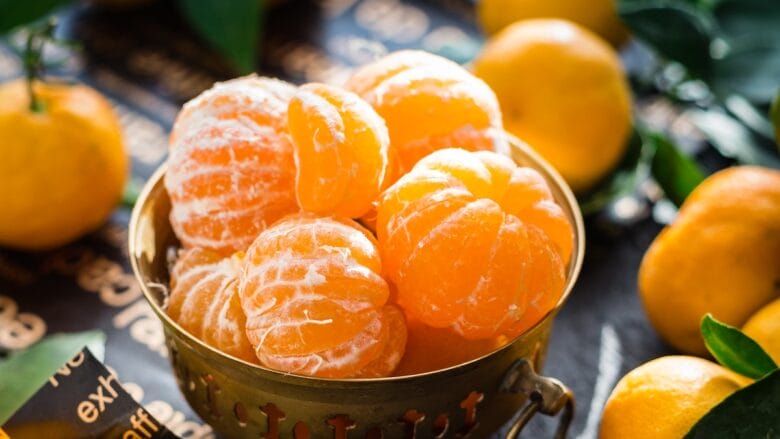
Some stores carry specific flavors of kids’ beverages that range from natural fruits like applesauce and banana smoothies with chia seeds (for toddlers) all the way up through cranberry raspberry blends to fit more mature palettes!
If none of those appeal to them personally then always try mixing up two different flavors together —you never know—it’s worth a shot!
To sum it up – when looking around at different options in stores or online make sure you are getting an organic product; select something that offers lots of nutritional benefits; and lastly, find something with flavor combinations that will work well with them – not against them!!
Is Baby Juice Safe for Babies?
Yes, baby juice is safe for babies and may even be beneficial to their health. Of course, as with any food or drink, moderation is key when introducing a new item into your baby’s diet.
Baby juice typically contains fruits like apples, cranberries, pears, and/or mangoes blended together with filtered water. As long as the components of the juice are fresh and organic (preferably non-GMO), it can provide your little one with important vitamins and minerals like Vitamin C & E plus calcium & potassium which are necessary for his or her development.
Baby juices also contain fiber that promotes regularity in digestion and helps keep tummies full longer—which can be particularly helpful for breastfed babies who need to go longer between feedings.
In general, it’s recommended that you wait until your child is at least 4 months old before introducing any type of solid foods into their diet—but some parents choose to introduce fruit juices earlier than this if their pediatrician okays the idea first.
Whenever you decide to give your baby juice, make sure it’s diluted properly: for every one part juice mix four parts of water so they don’t get too much sugar or calories from the beverage overall.
Finally, always check with a qualified healthcare provider (such as a nurse practitioner) before adding anything new to an infant’s diet—especially if there’s any concern about allergies or other digestive issues in your family.
What are the Benefits of Giving Baby Juice to Babies?
Giving baby juice to babies can be beneficial for their overall health and development. It’s important to introduce the right types of juice in an age-appropriate manner for optimal results.
First, baby juices are a good source of vitamins and minerals that help promote healthy growth, as well as improve baby’s cognitive skills and immune system function. Most juices contain several essential nutrients such as vitamin A, folate, vitamin C, potassium, fluoride, and zinc which can support healthy brain development in babies. Baby juices from fresh fruits are rich in antioxidants like beta-carotene that may reduce the risk of certain chronic diseases later on in life.
Second, certain kinds of fruit juices have laxative properties that can help prevent constipation or alleviate its symptoms when it does occur. Prune juice is one oft-recommended variety because it contains high amounts of dietary fiber which helps draw water into stools making them softer and easier to pass – great news for parents dealing with a constipated baby! Other varieties like apple or pear juice also contain natural sugar substitutes such as fructose making them useful alternatives if your child doesn’t enjoy drinking lots of water every day.
Third, giving your little one some undiluted fruit juice during meal time or between meals can aid digestion by helping break down heavy foods more quickly before they enter the intestine where most nutrient absorption takes place. The natural enzymes found inside these beverages act much like digestive aids by breaking down proteins into simpler components like amino acids so they can be absorbed easily into the bloodstream – providing much-needed nutrition without putting too much strain on a delicate stomach!
Overall, introducing some variety to your infant’s diet with small amounts of baby juice has many potential benefits including better growth rate due to increased vitamin intake; relief from constipation due to higher fiber content; improved digestion thanks to natural enzymes; plus added flavor which might make eating more appealing than ever before! Always make sure you choose organic brands whenever possible though – since pesticides used during production could end up negating all those wonderful benefits otherwise!
What Kind of Juice is Best for Babies?
Choosing the right juice for babies is an important decision that must be made carefully. As a general rule, 100% fruit and vegetable juices are best for babies. Whenever possible, organic options should be chosen for both safety and nutrition.
When selecting juices that contain only fruits or vegetables, it’s important to look at the sugar content on the label as some varieties can have surprisingly high amounts of added sugar. Organic versions of these juices often have less sugar than their mass-produced counterparts due to not needing to add sweeteners in order to increase shelf life or extend product ranges.
When choosing commercial store-bought baby juice, look for products labeled as containing “100% juice”. These typically have no added sugars (and no preservatives either). It’s also important to check the ingredient list; it should just include fruit and/or vegetable ingredients – no additional flavorings or sweeteners such as corn syrup.
Finally, you should always consider homemade baby juice if you can manage it dedicated juicers are great tools for this purpose but even with store-bought ingredients you can make deliciously healthy purees in minutes by blending together organic fruits and vegetables such as apples, carrots, or mangoes! Not only is homemade baby juice more cost-effective than purchasing pre-bottled varieties from stores but you also know exactly where each ingredient has come from; so there aren’t any hidden surprises!
When Can Babies Start Drinking Juice?
When it comes to introducing juice to babies, it’s important to consider both nutrition and safety. While juice provides babies with a source of vitamins and minerals, it is not recommended for infants under one year old due to the high sugar and acid content.
After the baby’s first birthday, parents can start offering 100% fruit or vegetable juice in small amounts as part of their daily diet. Even then, however, pediatricians recommend limiting the daily intake of all juices – including those that claim they are “no sugar added” – as well as avoiding sugary drinks like soda altogether.
Juice should be limited to five ounces daily after age one; 4 ounces for toddlers aged 2 to 3 years old; 3-to 4 ounces between ages 4 to 6; and no more than six ounces daily between 7 and 24 months.
It’s also important for parents to remember that juices should never replace breastmilk or infant formula when feeding younger ones. Taking the time for each feed helps establish good eating habits that will last throughout life!
This means avoiding processed sugars found in juice as much as possible before age 12 months. It will also help ensure adequate hydration since water is key in developing healthy drinking habits early on too!
When considering specific types of baby juice look out for certified organic options free from preservatives or added sugars (like white grape). Always consult your doctor about any specific health concerns you may have when beginning solids with your baby including consumption of fresh squeezed fruit/vegetable juices crafted specifically with little tummies in mind (try cucumber & celery!)
Additionally – make sure portions are appropriate by following standard serving sizes outlined by your child’s healthcare provider!
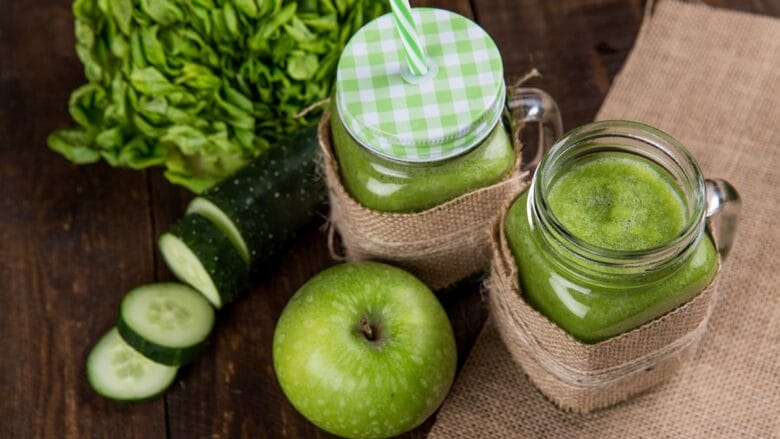
How Should Baby Juice Be Prepared?
Preparing baby juice is an important part of a healthy diet for infants and toddlers. It’s essential to make sure the juice you give them is safe and nutritious, as their bodies are still developing rapidly. To ensure that the juice you provide is safe and properly prepared, here are some key tips:
First and foremost, always purchase 100% fruit or vegetable juices labeled “juice.” When shopping for these products, check that the labels say “unsweetened” or “no added sugar.” Adding sweeteners such as sugar can increase the risk of tooth decay in young children. Choosing low-sugar varieties, like apple juice with a concentrate of 3x or 4x dilution water will reduce this risk further.
If buying canned juices or nectars from your grocery store’s shelves, compare labels to make sure these contain 100% juice; look out for ‘drinks’ which may be mostly made up of artificial flavors and colors with minimal amounts of pure fruit/vegetable juices added in!
It’s also important to keep in mind how much liquid your little one should be consuming daily on average (as recommended by pediatricians): babies aged 6 months – 1 year require approximately 4 ounces (120 mL) per day while toddlers aged 1-3 years old need about 8 ounces (240 mL). Keep portions smaller if your child has any medical issues affecting fluid intake.
For instance, if your baby has had diarrhea recently they may need smaller portions so they don’t become overly full too quickly. Make sure not to exceed these limits either way — excess consumption can lead to stomach upset because their digestive systems are still delicate at this age!
To further keep overconsumption under control when offering drinks such as juice – only let them have it during meal times unless otherwise instructed by your pediatrician; after meals allow no more than 2-4 oz., depending on age considerations again!
Opting for fresh fruits instead of using a mealtime strainer also encourages introducing kids early on into solid food textures & tastes rather than relying solely on liquids like smoothies & juices alone throughout development stages in infancy & toddlerhood :)
Lastly, remember that water is always great too – even though it doesn’t offer the same benefits associated with naturally occurring sugars found within real plant sources larger amounts can fill them up easily thus providing hydration before getting overloaded from sugary sweetnesses ;)
Are There Any Additional Health Benefits of Giving Baby Juice?
You may have heard that giving your baby juice can provide some health benefits, but what you may not know is just how wide-ranging these advantages can be. There are countless vitamins, minerals, and antioxidants in most juices that can provide numerous nutrients to help support the growth of your baby’s body. Here are a few of the potential health benefits of giving your baby juice:
1. Boosted Immunity
Juices contain high levels of vitamin C which can help to strengthen and boost immunity. In addition, juices often also contain compounds like phenolic acid which act as natural antibiotics and anti-inflammatories for the body. This means that if your child does come down with something minor such as a cold or flu, providing them with some fresh juice could help their body fight it off more rapidly.
2. Improved Digestion
Drinking certain juices on a regular basis helps stimulate digestion by increasing the production of enzymes in the stomach needed for proper digestion. Many types of fruit and vegetable juices have dietary fibers that help promote healthy gut flora & bacteria.
Resulting in better nutrient absorption from food intake as well as improved bowel movements – both essential needs for growing babies!
3. Stronger Bones
Many baby juices are fortified with calcium & other trace minerals vital to bone growth.
This makes them an excellent option when you’re looking to add extra calcium into your little one’s diet without resorting to dairy products (sometimes acidic milk products aren’t suitable).
Overall, adding fresh organic juice into any growing toddler’s daily diet provides many nutritional advantages; it’s an easy way to supplement their daily meals without adding too much sugar or artificial ingredients found in commercially processed foods/juices – making it safe even for young babies who don’t require much-added sugars yet!
So if you’re considering introducing juice into your child’s diet then talk with a pediatrician about which varieties would best suit them before making any purchases.
You may like: Top 10 Best Sellers in Baby Stroller Travel Systems.
Conclusion

In the end, it’s all about finding what works best for your little juice-lover. Giving your baby the best baby juices doesn’t have to be a daunting task, as long as you remember to prioritize their health and nutritional needs. From boosting their immunity to promoting digestion and strengthening their bones, the benefits of incorporating juice into their diet are plentiful.
So what’s the wait? Gear up, hit the stores (or just click away online), and fill your cart with the best baby juice of 2024 for your little one. Who knows, you might just find a new favorite for yourself too! Sip, sip, hooray!
References: 1. https://kidshealth.org/en/parents/babies-juice.html 2. https://www.whattoexpect.com/first-year/baby-feeding/when-can-babies-have-juice 3. https://publications.aap.org/pediatrics/article/139/6/e20170967/38754/Fruit-Juice-in-Infants-Children-and-Adolescents


